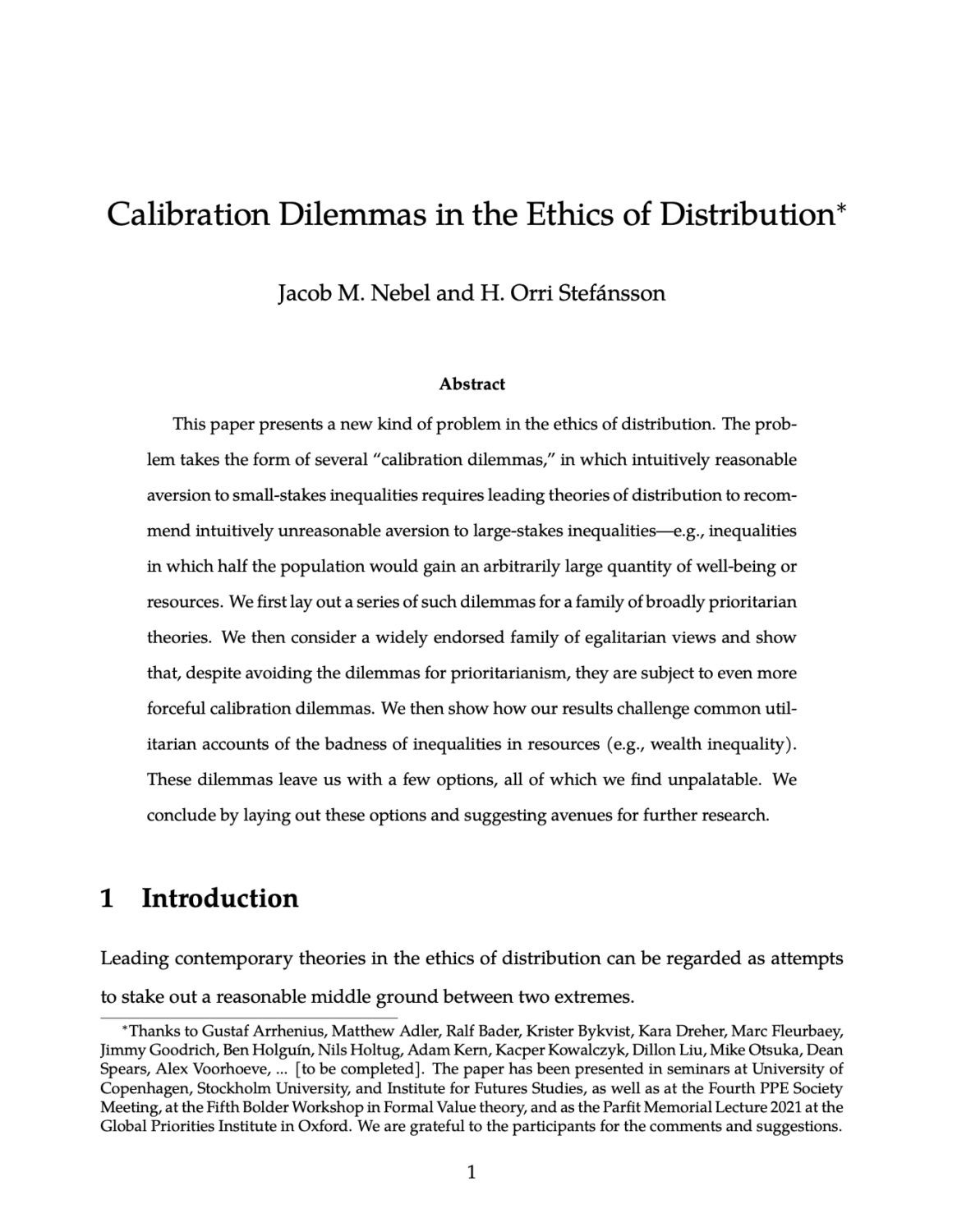Calibration dilemmas in the ethics of distribution
Jacob M. Nebel (University of Southern California) and H. Orri Stefánsson (Stockholm University and Swedish Collegium for Advanced Study)
GPI Working Paper No. 10-2021, published in Economics & Philosophy
This paper was the basis for the Parfit Memorial Lecture 2021.
The recording of the Parfit Memorial Lecture is now available to view here.
Other working papers
Misjudgment Exacerbates Collective Action Problems – Joshua Lewis (New York University) et al.
In collective action problems, suboptimal collective outcomes arise from each individual optimizing their own wellbeing. Past work assumes individuals do this because they care more about themselves than others. Yet, other factors could also contribute. We examine the role of empirical beliefs. Our results suggest people underestimate individual impact on collective problems. When collective action seems worthwhile, individual action often does not, even if the expected ratio of costs to benefits is the same. …
Economic inequality and the long-term future – Andreas T. Schmidt (University of Groningen) and Daan Juijn (CE Delft)
Why, if at all, should we object to economic inequality? Some central arguments – the argument from decreasing marginal utility for example – invoke instrumental reasons and object to inequality because of its effects…
Critical-set views, biographical identity, and the long term – Elliott Thornley (Global Priorities Institute, University of Oxford)
Critical-set views avoid the Repugnant Conclusion by subtracting some constant from the welfare score of each life in a population. These views are thus sensitive to facts about biographical identity: identity between lives. In this paper, I argue that questions of biographical identity give us reason to reject critical-set views and embrace the total view. I end with a practical implication. If we shift our credences towards the total view, we should also shift our efforts towards ensuring that humanity survives for the long term.

